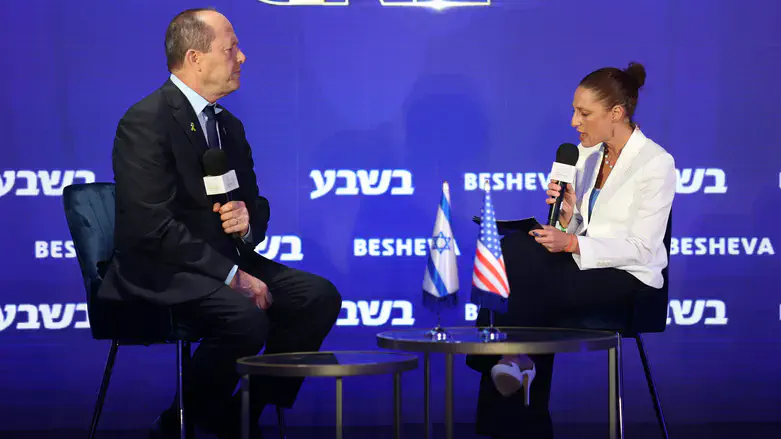
Minister of Economy Nir Barkat laid out a clear, hardline vision for Israel’s geopolitical and economic path forward, speaking with ILTV Executive Editor Maayan Hoffman at the Jerusalem Conference in New York City on Sunday.
Addressing a range of issues from US tariffs to Israel’s military operations in Gaza, Barkat said he remains optimistic that Israel’s close relationship with the United States will help ease potential economic fallout.
“A country like Israel, which is best friends [with the US], and we're having very intimate discussions with the American team on how do we align interest and hopefully get it to zero,” Barkat said. “The discussions are really good.”
Asked about President Donald Trump’s recent trip to the Gulf States—which excluded Israel—Barkat downplayed concerns, calling the visit “an economic one.” He instead focused on the broader strategic divide in the Middle East. “There is the evil axis, starting with Iran, including Qatar… and other proxies around the region. The more we fight with them, the more we make sure they pay a heavy price.”
Barkat emphasized that military pressure on Hamas is essential to securing the release of the hostages. “The cabinet decided together, unanimously, to put more pressure, more army into Gaza, with the understanding that pressure will bring an opportunity to deal closer… I believe it increases the chances of doing a deal.”
On the looming threat of a US-Iran nuclear agreement, Barkat issued a stern warning. “We have one goal. Actually, make them two. The first, make sure they do not ever have a bomb. And the second… they admitted to pushing the button in October. October 7, they wanted to derail the process, the peace process with the Saudis, and their fingerprints are all over October 7.”
Barkat called for a tougher Israeli response to Iranian-backed attacks, invoking the Kennedy-era deterrence doctrine. “A missile coming from the Houthis or coming from Lebanon should be answered with a missile to Tehran… If we don't sleep good at night, Tehran must not sleep good at night.”
The minister also noted a major legislative development—the Ministerial Committee on Legislation’s approval of his bill to label Qatar a terror-supporting state. “There will be no more gray. And Qatar is a classic example that played two sides. They're a wolf in sheep's clothes,” he said.
“Hundreds of thousands of people were killed because of their blood money… and it’s in Israel’s best interest to make sure Qatar is defined as a terror-supporting state,” concluded Barkat.
